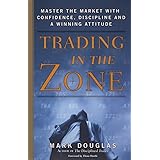Table of Contents
Tax-Efficient Investing Strategies: Keep More of Your Hard-Earned Money
Hey there, future financial wizards! Today, we're going to dive into the world of tax-efficient investing strategies. Sounds complicated, right? Don't worry, I'm here to break it down for you in a way that even your grandma could understand. So, grab a cup of hot cocoa, cozy up, and let's get started!
Understanding Tax-Efficient Investing
First things first, let's talk about what tax-efficient investing actually means. In simple terms, it's all about making smart choices with your investments to minimize the amount of taxes you have to pay. Why is this important? Well, taxes can eat into your hard-earned money, so the less you have to pay, the more you get to keep for yourself. Makes sense, right?
- Tax-Deferred Accounts: One common tax-efficient strategy is to invest in tax-deferred accounts like Registered Retirement Savings Plans (RRSPs) in Canada or Individual Retirement Accounts (IRAs) in the United States. These accounts allow your investments to grow tax-free until you withdraw the money in retirement, giving you more time for your money to compound without being taxed.
- Tax-Efficient Investments: Another strategy is to focus on investments that are tax-efficient, such as index funds or exchange-traded funds (ETFs) that have lower turnover rates, resulting in fewer capital gains distributions that are taxable.
- Tax-Loss Harvesting: This strategy involves selling investments that have experienced a loss to offset gains in other investments, thereby reducing your overall tax liability.
By implementing these strategies, you can potentially save thousands of dollars in taxes over the long run, allowing you to keep more of your money working for you.
Maximizing Tax Efficiency in Canada and the United States
Now, let's take a closer look at how tax-efficient investing strategies can be applied in both Canada and the United States.
- Canada: In Canada, investors can take advantage of tax-sheltered accounts like RRSPs and Tax-Free Savings Accounts (TFSAs) to minimize taxes on their investments. RRSP contributions are tax-deductible, reducing your taxable income, while TFSA withdrawals are tax-free, allowing your investments to grow tax-free.
- United States: In the United States, investors can utilize retirement accounts like Traditional IRAs and Roth IRAs to achieve tax efficiency. Traditional IRAs offer tax-deferred growth, while Roth IRAs provide tax-free withdrawals in retirement.
By understanding the tax laws and investment vehicles available in each country, you can tailor your investment strategy to maximize tax efficiency and keep more of your hard-earned money.
Now, let's look at some statistics to drive home the importance of tax-efficient investing. According to a study by Vanguard, tax-efficient investing strategies can add up to 0.75% in additional returns annually for investors. Over a 30-year period, this could result in tens of thousands of dollars in additional wealth accumulation.
Imagine what you could do with that extra money – whether it's retiring early, traveling the world, or buying your dream home. The possibilities are endless when you take control of your finances and make smart decisions with your investments.
Practical Exercises
Now that you've learned about tax-efficient investing strategies, it's time to put your knowledge into action. Here are some practical exercises to help you apply these concepts to your own financial situation:
- Review your investment portfolio and identify any tax-inefficient investments that could be replaced with more tax-efficient alternatives.
- Maximize contributions to tax-sheltered accounts like RRSPs or TFSAs to take advantage of their tax benefits.
- Consider implementing tax-loss harvesting strategies to minimize your tax liability and optimize your after-tax returns.
By incorporating these exercises into your financial planning, you can take control of your taxes and keep more of your hard-earned money for yourself. Remember, the key to financial success is not just how much you earn, but how much you keep. So, start implementing tax-efficient investing strategies today and watch your wealth grow!
I'll end by saying this: I'm doing my best to explain and simplify these concepts. But know that these short articles are just the beginning, and I want you to keep reading, learning and experimenting. To help you, here are a few books on investing, to prepare you for a deeper dive into the world of wealth creation:













3b4n6c